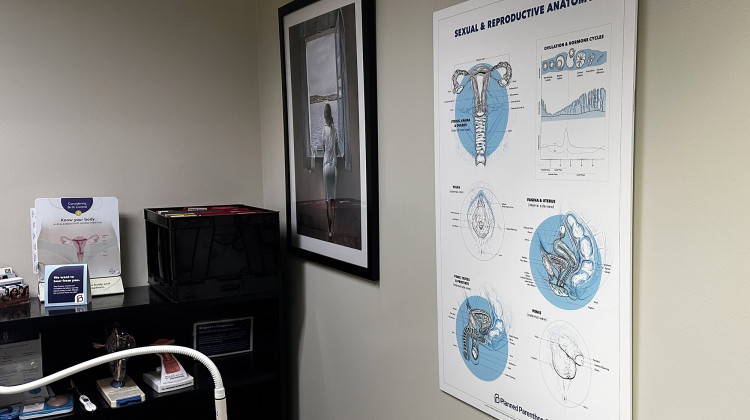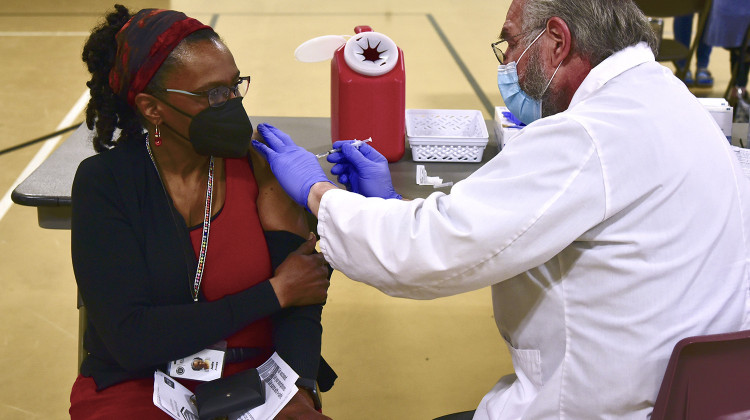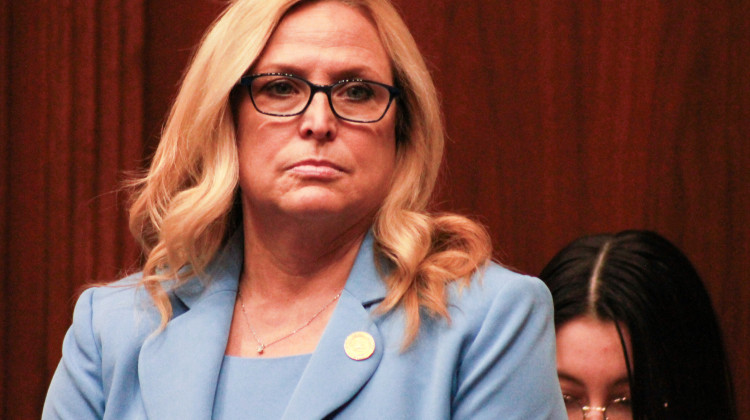
Lawmakers said the amended bill gives patients birth control options and introduces requirements for health departments to provide education on “fertility awareness” birth control methods.
Abigail Ruhman / IPB NewsMedicaid recipients in Indiana could have more access to birth control under legislation passed by a House committee. However, advocates said an amendment limits people’s options to just a few birth control methods.
The original language of House Bill 1169 required local health departments to provide Hoosiers making less than 185 percent of the federal poverty line access to condoms, long-acting reversible contraceptives and over-the-counter birth control.
But the revised bill limits that access to just Medicaid members. And it restricts the specific types of birth control to hormonal contraceptive patches and a self-administered hormonal contraceptives — removing condoms and long-acting reversible contraceptives.
Kristin Adams is the president and CEO of Indiana Family Health Council. The group is the primary recipient of federal funding for family planning services in Indiana under Title X.
“When women are given options of their choice and where cost is not an issue, a quarter of those women using contraceptives would choose a different, more reliable option and 39 percent would start using contraception,” Adams said.
Adams said a broad range of contraceptive methods includes abstinence, condoms, natural family planning and long-acting reversible contraceptives. She said lawmakers need to consider evidence-based, publicly-funded comprehensive family planning programs if they want to address the problems they’ve identified.
Lawmakers said the amended bill gives patients birth control options and introduces requirements for health departments to provide education on “fertility awareness” birth control methods.
Rep. Cindy Ledbetter (R-Newburgh) said people should have access to education on natural family planning.
“That's respectful of faith,” Ledbetter said. “We're trying to include every possibility. We have a large Catholic population in Indiana, and I think for them to be able to be educated on that would be important as well as the other types.”
Rep. Joanna King (R-Middlebury), the author of the amendment, said the bill will increase access even with the amendment.
“The premise of this bill is really being able to give more education out to women in our communities and giving kind of a guardrail for the health departments to know this is what we would like you to do, this is how we would like to do it so that it's the same in every community, right?” King said.
Adams said education is important, but providing comprehensive family planning services is vital to public health.
“I'm a health educator,” Adams said. “If education was the answer, we wouldn't have teenage pregnancy problems.”
Join the conversation and sign up for our weekly text group: the Indiana Two-Way. Your comments and questions help us find the answers you need on statewide issues, including our project Civically, Indiana and our 2025 bill tracker.
Dr. Amy Caldwell, an OB-GYN with the Indiana chapter of the American College of Obstetricians and Gynecologists, said the focus on natural family planning and removal of other methods is a disservice to patients.
“We do wholeheartedly support access to all contraceptive methods, including natural family planning,” Caldwell said. “Unfortunately, there are women who cannot use natural family planning. If you don't have regular periods, it's not an option for you.”
Caldwell said that’s a common problem among patients. She said not including long-acting reversible options goes against all medical information and guidelines.
Every person who testified on HB 1169 said their stance changed due to the amendment. Every advocate, doctor, midwife and provider said they were neutral or in support of the original language, but stood in opposition to the amended language.
The goal of HB 1169, according to Rep. Jim Lucas (R-Seymour), is to curb Medicaid spending.
“Since 2017, Medicaid has averaged paying for 53 percent of the births in Indiana,” Lucas said. “Not only is that tragic, but I think it is unsustainable fiscally.”
Lucas said addressing unplanned pregnancies could be a “huge step” in addressing that issue.
“For every unplanned birth that is brought into this world, chances are you're going to have that mother join that child on Medicaid,” Lucas said.
Lucas said this is an option for people to work with a health care provider to develop a plan that works best for them.
Abigail is our health reporter. Contact them at aruhman@wboi.org.
 DONATE
DONATE






 Support WFYI. We can't do it without you.
Support WFYI. We can't do it without you.